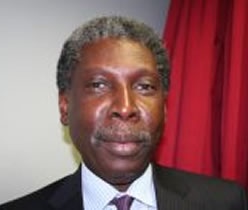
Mr. Yusupha Crookes, World Bank Country Director has called for the Passage of the Right to Information (RTI) Bill, which is stalled in Parliament, to demonstrate Government’s commitment to open governance.
He said the bill, when passed, would afford the citizens better access to fiscal, monetary and financial information and enhance independent policy analysis and the ability of citizens to monitor the cycle of public policies.
Mr. Crookes stated these on Wednesday during the opening of a one-day workshop dubbed “Improving Accountability and Public Policy Outcomes through Independent Budget Monitoring,” organised by the World Bank in Accra.
The World Bank Country Director added that the passage of the Right to Information Bill would also lead to enhanced accountability, improved government effectiveness and better fiscal outcomes whilst contributing to inclusive economic growth.
He said over the past two decades, Ghana’s performance on democratic governance had continued to be impressive, arising from a number of factors, including strong multiparty system, growing media pluralism and strong voice from civil societies.
He noted that recent implementation of the Ghana Integrated Financial Information Management System (GIFMIS), would not only improve and strengthen budgeting and accounting, but would also serve as signs of effective development.
He said as part of the World Bank’s support towards improving economic institutions, the Bank’s Country Partnership Strategy (CPS) for the next three years would focus on strengthening budget institutions and public financial management systems to enable them to deliver on their mandate.
Mr. Crookes said the purpose of the workshop was to present the results of several reports produced by the Public Interest and Accountability Committee and civil society organisations on the monitoring of the budget and examining the results of public spending.
Dr. Sulley Gariba, Senior Policy Coordinator, Office of the President, noted that 50 per cent of the nation’s tax revenue goes into the payment of wages and urged all Ghanaians to continue to be productive.
He said as part of Government’s commitment towards infrastructural development, a huge chunk of the nation’s investment was put into developmental projects such the construction of roads and electricity.
Mr Bishop Akologo, Executive Director, ISODEC, called on Government agencies to ensure that all their financial plans were in total consonance with their respective ministries before seeking approval from Parliament.
He called on Ghanaians to be more concerned about the long-term plans that politicians had for Ghana and not the short term ones, which most of the time only favoured the political agenda of the party in power.